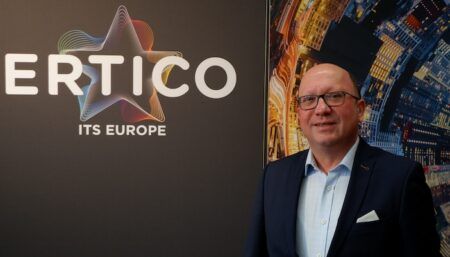The Toyota Research Institute (TRI) is exploring blockchain and distributed ledger technology (BC/DL) for use in the development of a new mobility ecosystem that could accelerate development of autonomous driving technology.
TRI is collaborating with the Massachusetts Institute of Technology Media Lab (MIT ML) and other industry partners to foster a digital environment where users, both businesses and consumers, can securely share driving and autonomous vehicle (AV) testing data, manage ride-share and car-share transactions, and store vehicle usage information that could be used in the setting of insurance rates. Blockchain technology sends information over a network of independent computers, known as a distributed ledger, intended to ensure that the transaction is secure and ownership rights over the data/property are protected. TRI believes blockchain may create transparency and trust among users, reduce fraud, and reduction of transaction costs applied by third party institutions.
TRI is working with several industry partners in addition to MIT ML to develop applications and proofs of concept for three areas of the new mobility ecosystem:
Driving/Testing Data Sharing – Blockchain technology may allow companies and individuals to securely share and monetize their driving information and access data from others in a secure marketplace;
Car/Ride Share Transactions – Tools based on BC/DL have the potential to empower vehicle owners to monetize their asset by selling rides, cargo space or use of the vehicle itself;
Usage-Based Insurance – By allowing the vehicle’s sensors to collect driving data and store it in a blockchain, owners may be able to lower insurance costs by measuring safe driving habits.
TRI’s other partners in BC/DL research include:
Berlin-based BigchainDB, which is building the data exchange for sharing driving and AV testing data;
Oaken Innovations, based in Dallas and Toronto, is developing an application for P2P car sharing, vehicle access, and payments with a new mobility token;
Commuterz, an Israeli startup, is working on a P2P carpooling solution;
Gem, from Los Angeles, is working with Toyota Insurance Management Solutions (TIMS) and Aioi Nissay Dowa Insurance Services on the usage-based insurance platform.
“Hundreds of billions of miles of human driving data may be needed to develop safe and reliable autonomous vehicles,” said Chris Ballinger, director of mobility services and chief financial officer at TRI. “Blockchains and distributed ledgers may enable pooling data from vehicle owners, fleet managers, and manufacturers to shorten the time for reaching this goal, bringing forward the safety, efficiency and convenience benefits of autonomous technology.”




